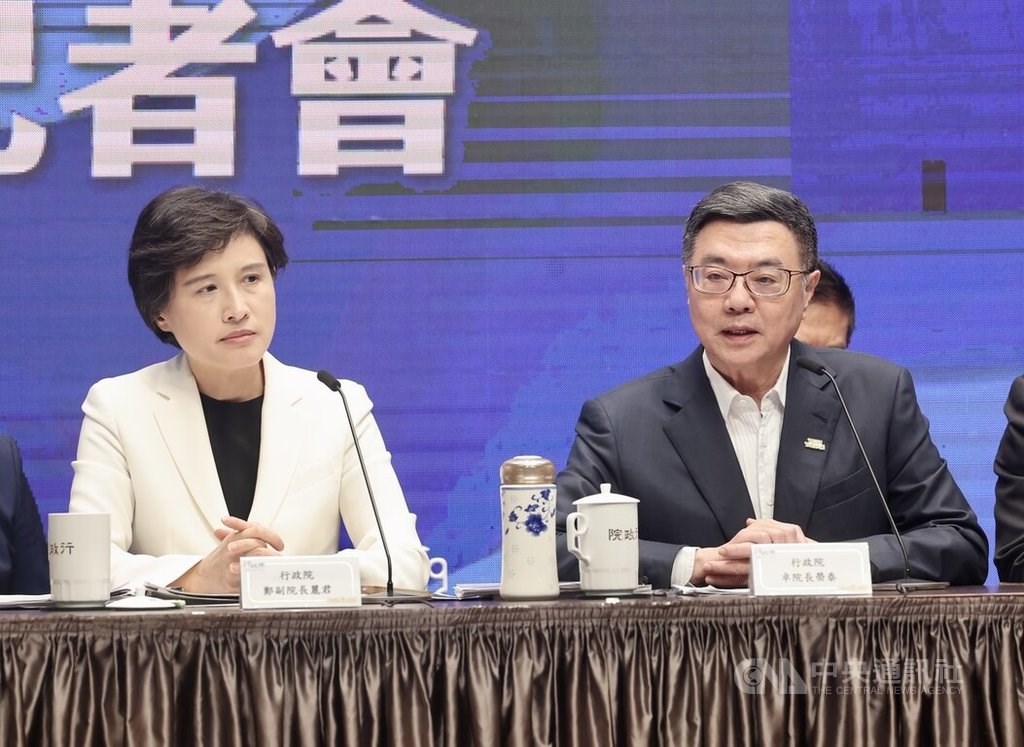Taipei, April 4 (CNA) The Executive Yuan on Friday unveiled a NT$88 billion (US$2.65 billion) proposal to assist Taiwanese businesses set to be hard hit by U.S. President Donald Trump’s sweeping tariffs.
At a news conference in Taipei, Premier Cho Jung-tai (卓榮泰) said that despite the government’s NT$88 billion support plans, Taiwan should be “braced for some shocks” after Trump on Wednesday (Washington time) announced an import tax of 32 percent on most Taiwanese goods.
Neither Cho nor other Cabinet officials specified how much impact the tariff, if implemented, would have on Taiwan’s economy and its gross domestic product (GDP), in particular.
However, Cho said some industries would face “significant impacts,” including electronics and information technology, steel and metal, machinery, auto parts, construction materials and home appliances.
In terms of agricultural products, moth orchids, edamame and such fish as tilapia, common dolphinfish and bass will be hit the hardest, the premier said.
Cho said the Cabinet’s proposal would be funded through a special budget that requires legislative approval, adding he would meet with ruling and opposition party lawmakers next week to seek their support.
According to Vice Premier Cheng Li-chiun (鄭麗君), the government plans to spend NT$70 billion on measures such as lowering loan interest rates, reducing administrative costs and expanding tax exemptions for Taiwanese industries affected by the pledged tariff.
In addition, the NT$70 billion funding will also be used to assist enterprises in diversifying their markets and investing in research and development, she said.
She added that the remaining NT$18 billion would be allocated to support the agricultural sector through loans, interest subsidies, equipment subsidies, and other measures.
Cheng said the government remained closely engaged with industries and businesses, adding that relevant agencies would set up service hotlines on April 8 to help them access government support.
Taiwan is among dozens of countries that will face the “reciprocal tariffs,” in what Trump described as an effort to address “unbalanced” trading relationships, reduce trade deficits, and boost American manufacturing.
Only select goods, such as copper, pharmaceuticals and semiconductors, are exempt from Trump’s latest duties, which are set to take effect on April 9.
In addition, Taiwan’s auto parts manufacturers will be hit with an import tax of 25 percent, expected to take effect before May 3, following the Trump administration’s expansion of duties on foreign automobiles.
According to data provided by the Ministry of Economic Affairs (MOEA) on Friday, Taiwanese exports to the U.S. reached US$111.4 billion in 2024, accounting for 23 percent of the country’s total exports.
ICT products topped the list of Taiwanese goods sold to the U.S., accounting for 52 percent of the total exports, followed by electronic components (13.4 percent), automobile parts (1.8 percent), fasteners (1.8 percent) and mechanical parts (1 percent).
Meanwhile, Taiwan imported US$46.5 billion worth of American goods, making up about 12 percent of the total imports. This resulted in a trade surplus of US$64.9 billion with the U.S., the MOEA data showed.
